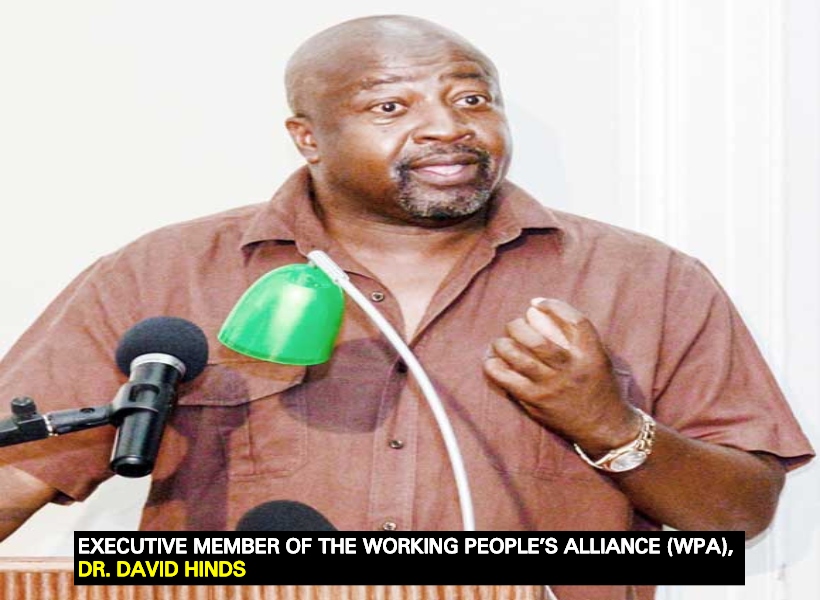The leading political parties in Guyana, being the People’s Progressive Party (PPP) and the People’s National Congress / Reform (PNC/R) — which is the largest faction of the APNU+AFC coalition — have often preached about the need for shared governance. But as attractive as the ideal has appeared to be over the years, some believe that too much tension exists among the parties for this to ever be realised.
During an interview with the Guyana Standard recently on this subject, Executive Member of the Working People’s Alliance (WPA), Dr David Hinds, said that he does not agree that shared governance between the PPP and the PNC is unattainable. The political activist stressed nonetheless that it has become more difficult.
Dr Hinds said, “I don’t think the PPP is interested in shared governance largely because that party feels that it could win the next general and regional elections by a wide margin and because its leadership is generally steeped in the politics of domination. I think they have historically been more resistant to shared governance given the majority or large minority Indian Guyanese vote.”
The WPA Executive noted that in the case of the People’s National Congress (PNC), it is more open to shared governance as is evident by its membership with the A Partnership for National Unity (APNU) plus Alliance For Change (AFC) coalition. But even then, Dr Hinds pointed out that the PNC approaches the idea of shared governance in practice from the standpoint of “big-party domination.” In other words, Dr Hinds said that the PNC wants shared governance in principle but undermines it in practice.
The University Associate Professor articulated that this attitude by the PPP and PNC makes it very difficult to sustain any shared governance experiment.
Dr Hinds said, “I don’t see in the short run how the two parties can function in the same government. One expects gridlock in all forms of government including in power-sharing ones. But if the PPP and PNC are in the same government there would be super-gridlock because their relations are governed by zero-sum politics with little room for consensus.”
The political activist said his sense is that there is now added pressure on the coalition to demonstrate that shared governance including the diverse parties can work. He commented however that this must mean improved management of the coalition to the satisfaction of all.













